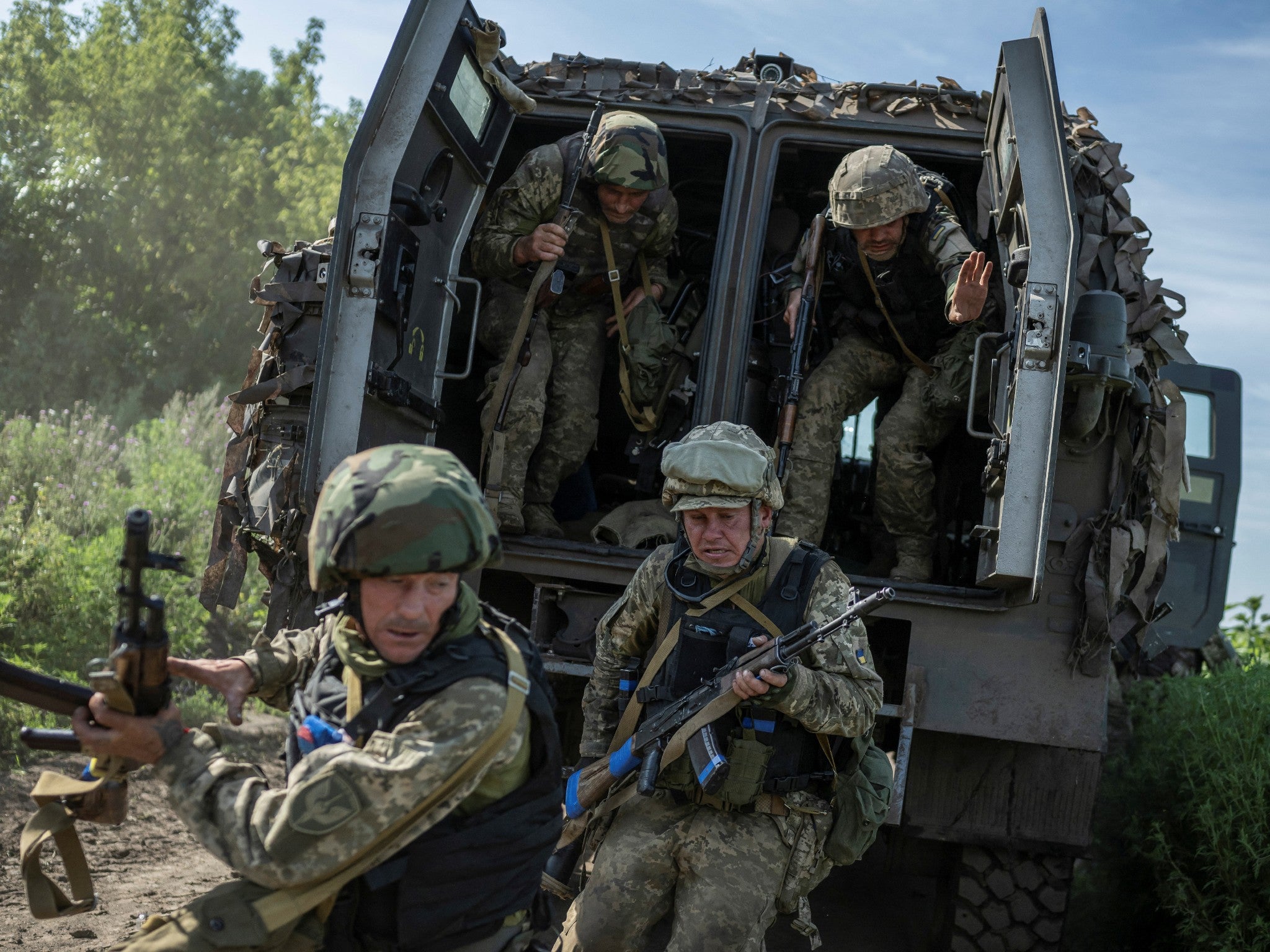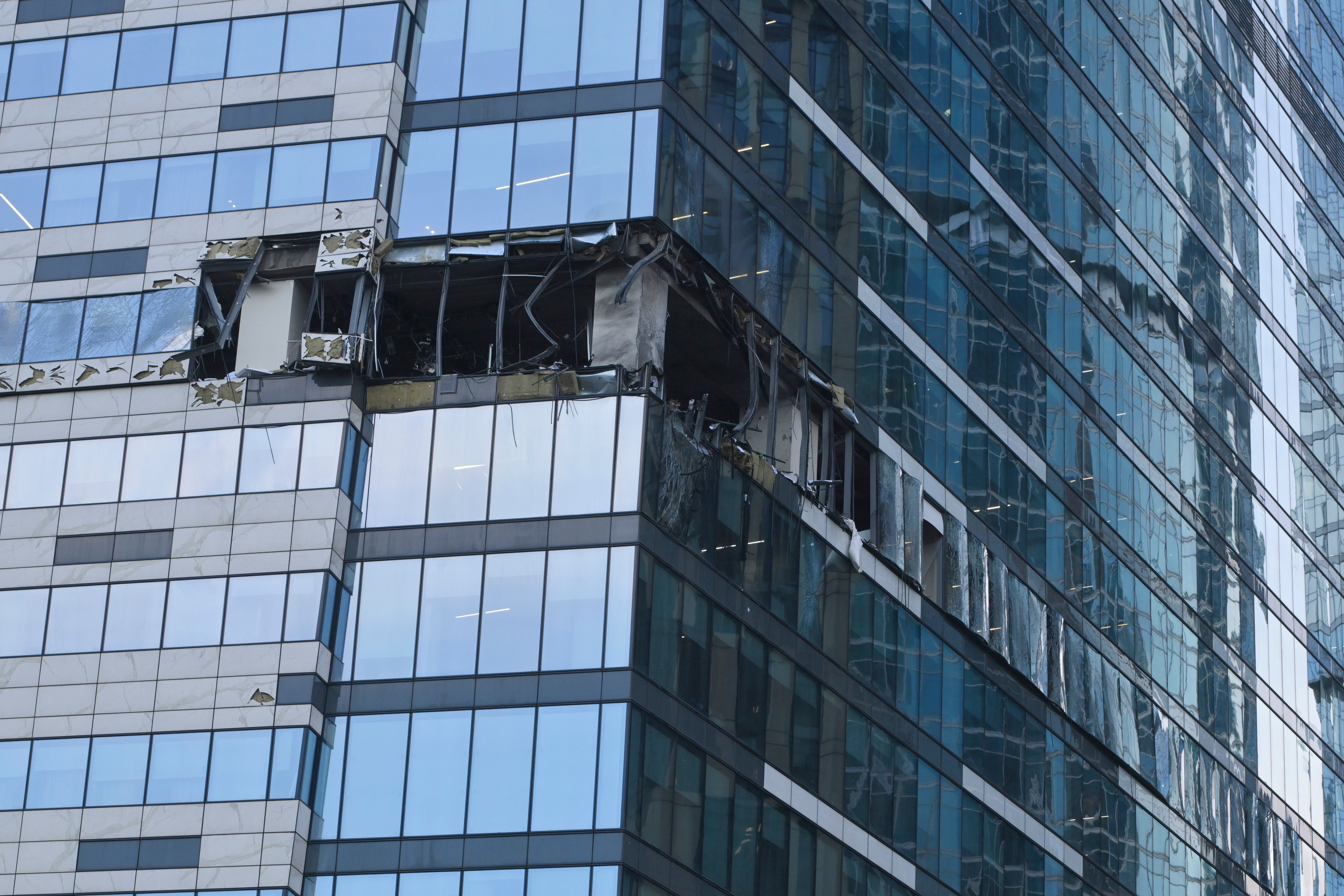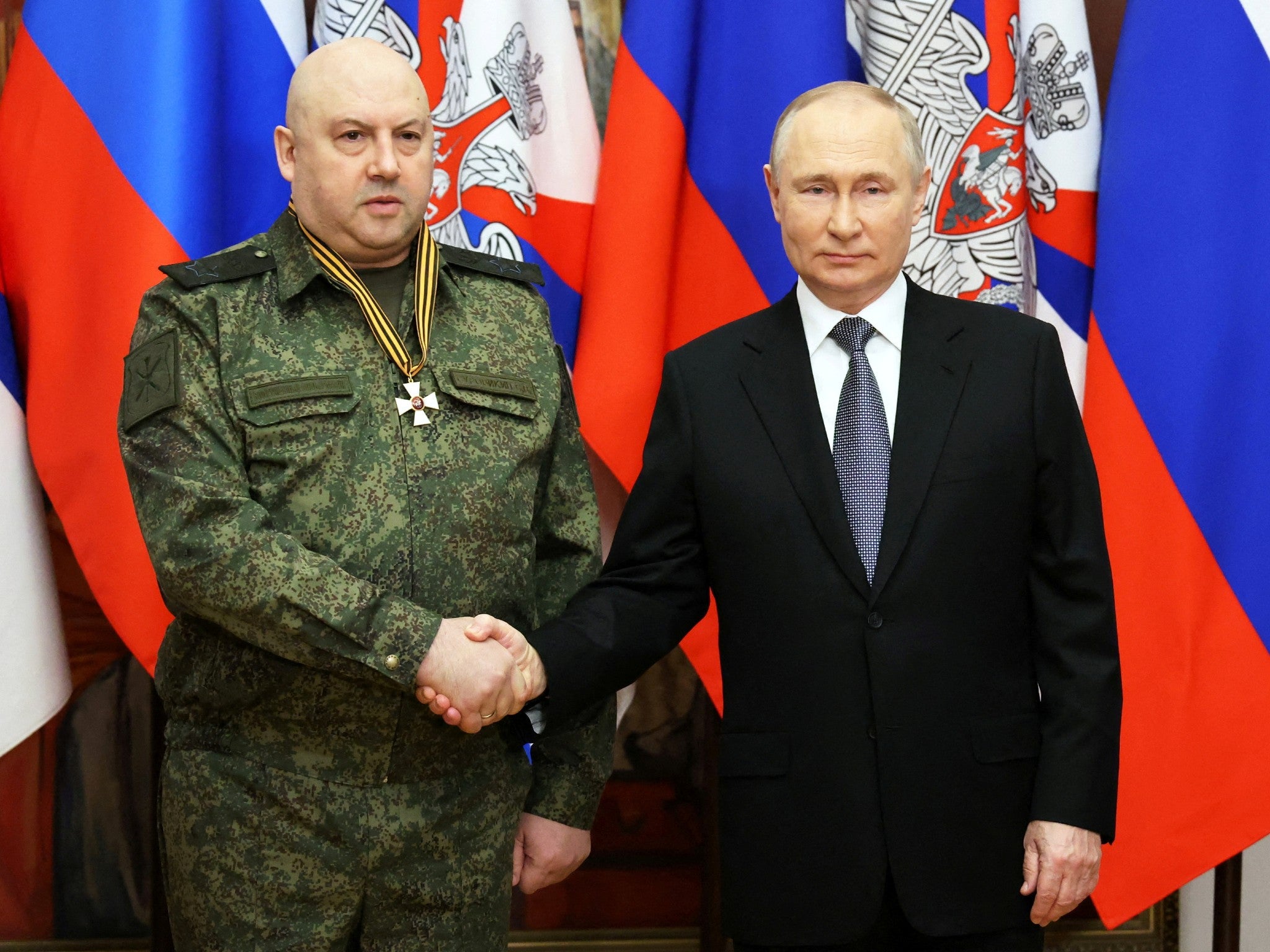Drones, military confusion and cracks in Putin’s authority: Ukraine’s push to sow discord in Russia’s ranks
Askold Krushelnycky speaks to Ukrainian officials about the ongoing counteroffensive and how Kyiv is seeking to exploit the extended fallout from Wagner’s short-lived mutiny


With Moscow facing a flurry of drone attacks in recent weeks – the latest over the weekend – Ukraine’s president, Volodymyr Zelensky, has said the war in his country is “returning to Russia”.
While Kyiv is always very cagey about claiming direct responsibility for attacks on Russian soil, the number of incidents has coincided with the Ukrainian counteroffensive to retake territory occupied by Moscow’s forces. All while the Kremlin is still dealing with the fallout from a mutiny last month by the battle-hardened mercenaries of the Wagner Group, led by Yevgeny Prigozhin.
The attempted uprising, which was halted after 24 hours with Prigozhin’s fighters about 125 miles from Moscow, opened the way for a barrage of criticism of Moscow’s top military leadership by some of its own most senior generals commanding Russia’s invasion forces in Ukraine. Kyiv’s aim? To take advantage of this discord, and to increase it. Anything that will help them on the front line.
Speaking to The Independent, an adviser to Ukraine’s presidential administration said the mutiny and its aftermath have sown anxiety and suspicion among Russia’s elite.
“Everyone hopes those negative effects will cascade down to further lower ordinary soldiers’ morale in a way that will diminish their ability to stand up to our forces,” he said. He added that morale, already low because the Russian invasion had ground to a halt, had sunk lower because of the infighting.
Russian president Vladimir Putin and other senior Kremlin leaders must have been aware of dissatisfaction in the Russian military, but were taken aback by the criticisms levelled by serving army commanders.

A mutiny by mercenary forces was worrying enough for the Kremlin elite, but they know that if such talk infected the regular forces, it could mean the end of Putin’s rule.
Commanders have echoed accusations made by Prigozhin, a former close confidant of Putin, that Moscow’s defence minister Sergei Shoigu and the chief of the Russian armed forces general staff, Valery Gerasimov, were grossly incompetent in conducting the war in Ukraine and are responsible for the tremendous loss of Russian lives. Most have refrained from criticising Putin directly. But because Shoigu and Gerasimov are such essential facets of Putin’s regime, many saw attacks on them as criticisms of the previously unassailable man himself.
In a recent intelligence report, the UK’s Ministry of Defence said: “The taboo against unmasked criticism of the Putin regime has significantly weakened.”
Ukrainian officials have speculated about how the mutiny was arranged, with one official telling me that he would not put it past Putin to have masterminded the episode to flush out opposition and demonstrate that any challenge to him would end in failure. However, even if the mutiny was theatre, it produced a very real effect on Russian society as a whole, and the elite in particular.
The Kremlin’s response? A purge of dissenting commanders that has seen some 11 of them fired, arrested, or suddenly disappear from public view. One such person who has not been heard from is General Sergei Surovikin, called “General Armageddon” for his tactics in Syria, who had been commander for a time of the forces on the ground in Ukraine, where he displayed his signature brutality. Surovikin was also closely associated with Prigozhin, leading to speculation about whether he was involved in the mutiny.
Even though he appeared to advise Prigozhin to abort the mutiny, Surovikin disappeared from public view and there were reports that he had been picked up by the Russian authorities for questioning. Official accounts have him “resting”. The Ukrainian defence ministry adviser told The Independent he believed there was another reason: “We believe he is not being put on trial or shown to the public yet because he has been so badly beaten up.” Only time will tell if there is any truth in that.

One of the first generals to go public with accusations like Prigozhin’s was Major General Ivan Popov, commander of the 58th Combined Arms Army in Russia’s Southern Military District, fighting in Zaporizhzhia in southern Ukraine. He criticised Shoigu and Gerasimov in a message shared on social media by a Russian parliament member who is also a reservist general, Andrey Gurulyov. British defence officials called the comments a “scathing attack” on the Russian.
Other generals reported to have faced removal, or censure, in the wake of the Wagner mutiny include Major General Vladimir Seliverstov, commander of the 106th Guards Airborne Division; Major General Alexander Kornev, commander of the 7th Airborne Assault Division; Major General Ramil Ibatullin, commander of the 90th Panzer Division, along with two of his deputies; Major General Nikolay Gostev, commander of Russia’s Fourth Air Force Army; Colonel General Mikhail Mizintsev, who was ousted earlier and had joined Wagner; and Colonel General Yunus-bek Yevkurov, a close colleague of Shoigu and one of his deputies.
Kyiv says its forces are making gradual advances against Russia’s three concentric lines of defence in a number of areas across the 600-mile front line, but their movements have been slowed by dense minefields and constant fire from Russian artillery.
Ukrainian officials have been at pains to point out that the main thrusts of the counteroffensive have not yet begun, and that Ukraine has not yet brought into action large quantities of Western-supplied tanks and other advanced weapons, or committed to battle the bulk of fresh troops trained by its allies – although the same Western allies have noted the thousands of troops deployed into certain areas recently.
Although Moscow has had months to prepare for this summer’s Ukrainian offensive, and is, by Kyiv’s admission, inflicting considerable casualties, it has not managed to stem Ukraine’s advances, noted by allies and also reported by independent observers such as the Institute for the Study of War.
Knowing that Ukraine has yet to bring to bear some of its most powerful weapons and best-prepared troops is likely to be making the Kremlin nervous.
The sense of invulnerability that Putin and his acolytes had sought to project is what Ukraine wants to chip away at, whether via drone, on the battlefield, or talking up fissures in Putin’s authority. All with the aim of maximising its own gains. As Zelensky has said: “Gradually, the war is returning to the territory of Russia, to its symbolic centres and military bases, and this is an inevitable, natural, and absolutely fair process.”
Join our commenting forum
Join thought-provoking conversations, follow other Independent readers and see their replies
Comments
Bookmark popover
Removed from bookmarks